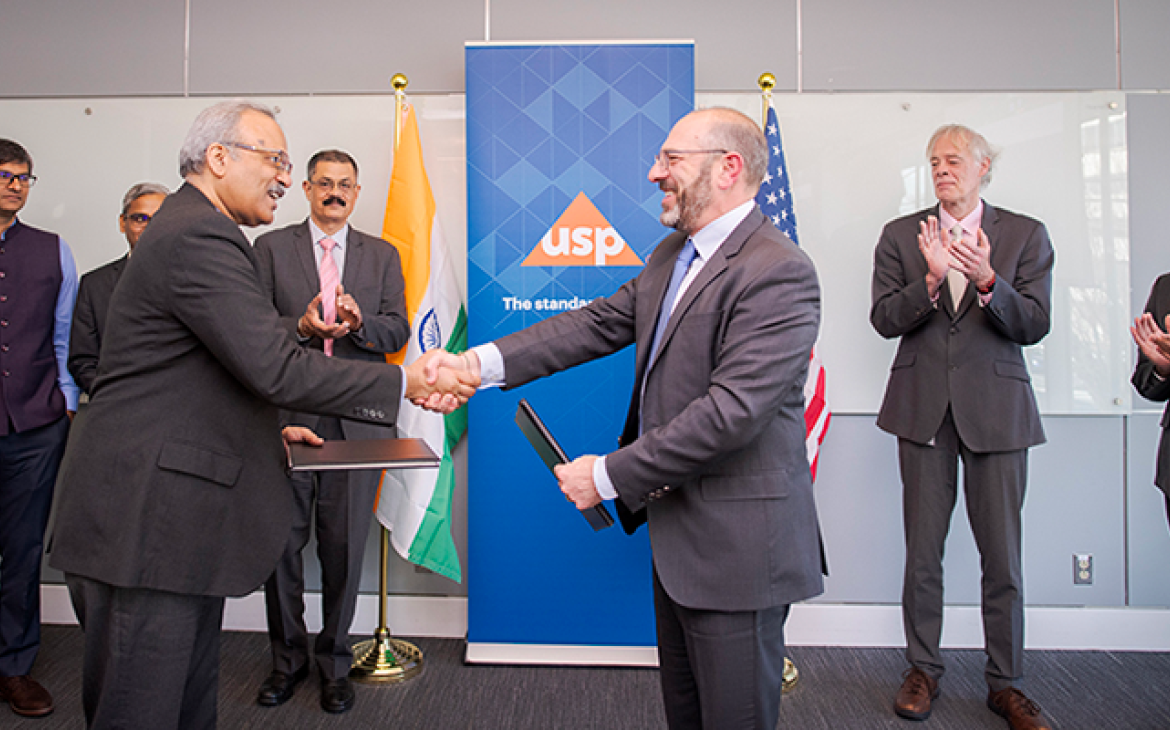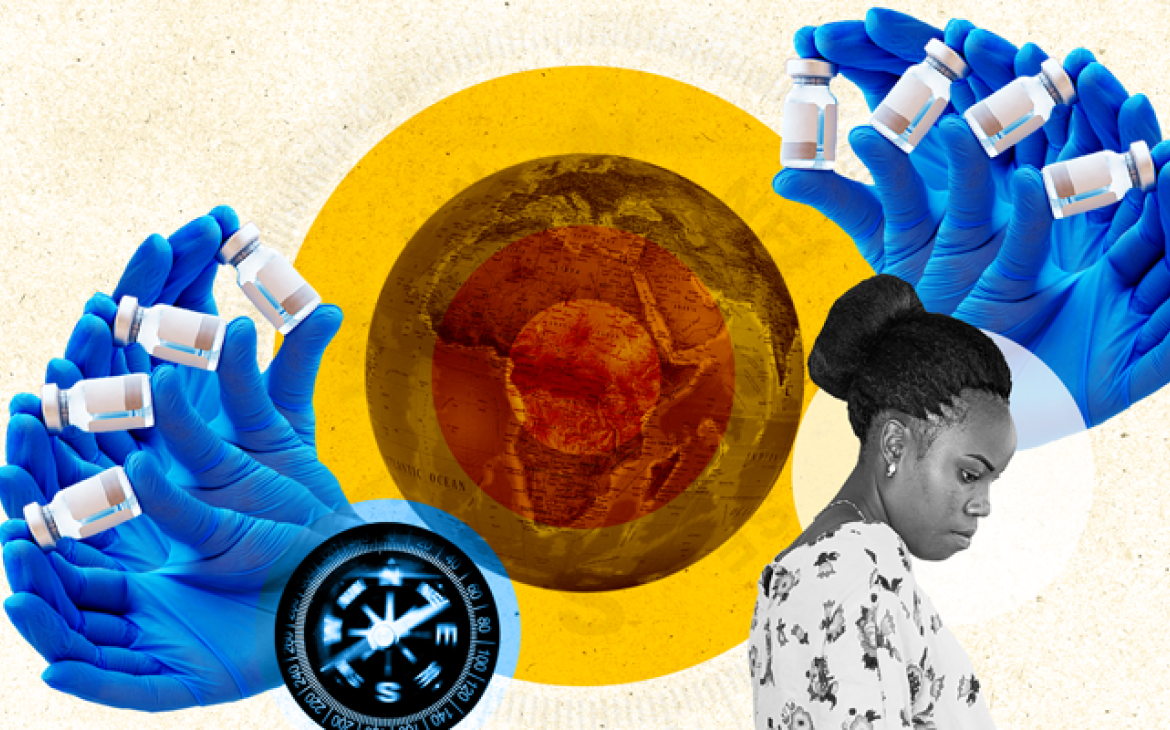
Reflecting on lessons from 2021 to inform global health priorities in the new year
It was one year ago this week when we welcomed news that the World Health Organization (WHO) approved the first COVID-19 vaccine for emergency use. Since then, however, the global COVID-19 vaccination effort has been vastly inequitable. We’ve also seen persistent supply chain challenges and an eroding of hard-wrought gains against tuberculosis, malaria, and HIV/AIDS.
Despite these challenges, there are many reasons we remain hopeful for the year ahead, including the groundswell of support for expanding local manufacturing as a means for achieving health equity in low- and middle-income countries, an unprecedented level of global cooperation, and important progress toward harmonization of medicines regulation.
We have an incredible opportunity to leverage the lessons of the last year to make an even greater impact in 2022. At USP, we are resolving to accelerate our global health efforts in four central areas:
1. Ensure medicine supply chain integrity and resilience
COVID-19 revealed long-standing vulnerabilities in medicine supply chains including the uneven application of best practices and standards to assure quality.
That’s why we are re-doubling our efforts to support resilient supply chains. Applying global quality standards across the supply chain is essential to ensuring patients have access to safe, effective, and quality-assured medicines, regardless of where they live.
Too often, when we think about the medicine supply chain, we think about logistics and procurement. But losing sight of quality can put patients at risk, and open up opportunities for the entry of substandard or falsified medical products.
When we talk about quality assurance in medicine supply chains, we mean integrating quality across the entire system—from manufacturing processes, to regulatory and procurement decisions, and down to good distribution and storage practices and routine testing that helps assure quality is maintained.
2. Expand local manufacturing
Many low- and middle-income countries are reliant on a handful of manufacturing sources and suppliers, which hinders their ability to respond to health emergencies, a fact that has borne out through the COVID-19 pandemic.
“The persistent inequity in access to vaccines, and the emergence of the Omicron variant, also shows why investing in local production must be a priority.” – WHO Director General, Tedros Adhanom Ghebreyesus
Investing in expanding local and regional manufacturing is key to improving access to medicines, vaccines, medical devices, and other health products to provide more equitable access for patients and communities worldwide. Building resilient supply chains must include production closer to patients.
But local manufacturers can’t do it alone. They need support from partners, regulators, policymakers, and others key partners to create an environment that enables local manufacturing to thrive. This support includes strengthening regulatory systems, facilitating successful technology and knowledge transfer, and ensuring manufacturing practices meet global standards for quality.
To achieve this, substantial and sustained investments are necessary from a multitude of sources, including development banks, international donors, private companies, and other stakeholders.
3. Improve equitable access to COVID-19 vaccines and treatments
With more than 50% of the world’s population having received at least one dose of a COVID-19 vaccine to date, much progress has been made to expand access worldwide. Yet, by contrast, less than 10% of people in low-income countries have received their first dose.
Now, more than ever, we must increase the production of quality-assured vaccines in low- and middle-income countries, assist these same countries in developing systems to monitor product quality and patient safety, and share scientific expertise and technical capacity with local regulators and manufacturers to ensure quality products.
4. Optimize resources for more efficient and effective medicines regulation
In 2022, ensuring the quality of medicines will continue to pose a global challenge, particularly in low- and middle-income countries, where regulators often lack tools and resources to curb the availability of substandard and falsified medicines.
In addition to helping national-level regulators strengthen key regulatory functions and increase their regulatory maturity, support for regional and continental mechanisms is key to creating a strong fabric of effective and efficient medicines regulation. Important progress was made in this area in 2021 with the recent establishment of the African Medicines Agency (AMA), a development that will require extensive coordination and support from an array of global partners to become fully operational.
If properly resourced, the AMA could help streamline regional medicine registration and approval to increase access to safe, effective, and quality-assured medical products while providing important continental coordination and oversight to prevent substandard and falsified medicines from harming patients.
Moving forward
Like many health organizations, USP was tested in an unprecedented way during COVID-19. But, I’m proud to be part of an organization that was able to quickly leverage its expertise to meet critical gaps in the global response, from supporting the production of quality-assured personal protective equipment, hand sanitizers, and therapeutics; to safeguarding quality and optimizing the distribution and use of COVID-19 vaccines. We also pivoted to conducting remote technical assistance, expanded our arsenal of technological tools, and leveraged our local and regional experts to reduce programmatic disruptions.
Working in solidarity with our partners across the globe, we’ll continue to respond to the COVID-19 pandemic as well as other threats to global health.
To follow our progress in 2022, sign-up to receive our global health newsletter.


